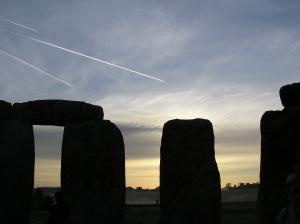To Know the Future
As you know, next week will see the launch of Elisha Barber, and with it, the culmination of a dream which will hopefully lead to many more. Will it be a success? The suspense is killing me! And it makes me wonder if this is one of those times that I already knew the ending.
In my article, “Spoiler Alert!” for Clarkesworld magazine, I used some recent research into how people enjoy stories, and some examples from Tolkien, to argue that readers often prefer to know the ending of a work–it’s been shown to enhance their enjoyment of reading. Prophecies, time machines, and prognosticators of various sorts are popular elements of speculative fiction. We want the stories to be twisty and unexpected, but we want the surprises to fall within a certain range or comfort. Would I rather know now if my book will hit one of the bestseller lists? What if it merely rests in the mid-list, or sinks to oblivion?
In some ways, it would be a comfort to know. Like the readers in those studies, it would take some of the pressure off, and, perhaps, allow me to enjoy the journey of arriving at that known end point. In fact, this desire to be certain of the end has been a driver of many aspects of human culture, perhaps from the start. (and you thought E. C. was giving up history in favor of blogging about writing–ha!)

Stonehenge at Dawn
Stonehenge is only one of many ritual centers constructed by early peoples around the world which contains built-in predictive inclinations based on the rising of certain stars at certain times of year. Imagine, if you will, the dark and worrisome days–and the great peace there must have been in knowing that the pattern of the stars themselves would return, that the sky, while it seemed to be changing, was, in fact, a constant. No wonder people began to name the patterns they saw and to shape stories for them, as if the stars (or, as in Peru, the dark spaces between them) were familiar creatures and old friends.
From there, it’s an easy step to imagine that these stars were placed by one or more great deities, for the deliberate use of his/her/its/their creation. We like to believe there is an order to the world around us, that, even if we don’t understand it all, there is structure and direction. Just as in my entry about finding the right ending, there is deep satisfaction in seeing the pattern we have begun fulfilled in a way that seems appropriate. It seems natural that we would postulate a writer–a creator–who has envisioned such a structure, and thus, such an end. In our holy books and stories, we imagine what the world after death is like, and are soothed by the vision, by knowing what will come.
Then we take a few steps closer, we make that ending personal. It’s no longer enough to gather at a ritual center to greet that returning star, we want to know how the star affects us, and we look for the pattern that will lead from the particular place we are, to the place we’d like–or fear–to go. Hence the medieval popes and monarchs who consulted astrologers, and the medieval physicians who explained the plague as caused by a conjunction of the planets which affected the air. Back around the turn of the first millennium CE, the Chinese created highly sophisticated astrological clocks, in large part to be able to write down the exact moment of the birth of an imperial heir, and use that information to predict his future. What would he be like? What sort of reign could he expect to face?
The desire to know the future has driven the creation of great works of architecture and engineering, the development of religions, the invention of new technologies. In fiction, it leads to the use of prophecy, the delivery of teaser readings or excerpts by the author, the creation of fan-fiction and whole websites devoted to speculating about what will come next in the series.
For millennia, humans have sought comfort in creating certainty about the future, whether it is for ourselves, our children, or our fiction. And yet, if we knew, truly knew, might we then stop searching the stars? If we knew how our dreams would end, might we not stop dreaming them?
#SFWApro





